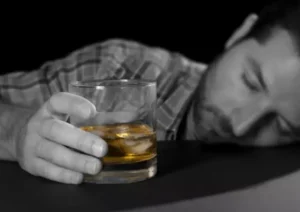
Since dry drunk syndrome isn’t an officially diagnosable condition, there’s no one answer as to how long it lasts. For some people, dry drunk syndrome lasts until they get formal treatment for their addiction. If they haven’t tackled the root causes of their addiction or co-occurring disorders, they cannot live a fulfilling life even when they’re technically sober. Some people use dry drunk syndrome1 to refer to post-acute withdrawal syndrome or PAWS2. PAWS can occur after someone stops taking a substance, and it involves a variety of mood and psychological-related symptoms.
What is Dry Drunk Syndrome?

Over time, the initial vigor and excitement of recovery can fade, leaving a sense of boredom or dissatisfaction. This “pink sober alcoholic meaning cloud” phase, where everything seems positive, dissipates, leading to a more challenging phase of maintaining motivation. This phase often begins subtly, with small annoyances becoming disproportionately frustrating. As these feelings grow, they can lead to a mindset of separation from others, feeling misunderstood or isolated. People with addiction often view themselves, others, and the world around them negatively. Superiority or grandiosity refers to a return to a self-centered mindset, where an individual believes the world revolves around them.
The Role of Treatment Centers in Addressing Dry Drunk Syndrome
The person may think that once they stop using or drinking, their life will miraculously be better. The road to sustained recovery is often bumpy, and one issue that may arise is known dry drunk syndrome. Integrated treatment involves treating both disorders at the same time. This can allow you to treat the symptoms of your mental health disorder without turning to alcohol or drugs.
Are You Ready to Change Your Life?

Relapse is something to regard as a temporary setback rather than a failure. Alcohol addiction is a disease, but that doesn’t excuse abusive behavior. If your loved one behaves in toxic or aggressive ways, it’s best to talk this over with a therapist and develop a plan to keep yourself safe. But remember that this phase is a fairly normal part of recovery, and it won’t last forever.
- It is generally admitted that alcohol abuse causes persistent structural brain changes, which are in the very definition of PAWS.
- Reaching out to therapists, support groups, or trusted loved ones can provide the assistance needed to navigate triggers and maintain sobriety.
- Remember, sobriety is not just about removing alcohol from your life; it’s about building a life where you don’t feel the need to escape through alcohol.
- If they aren’t addressed, the person may turn to more harmful ways to cope – with other unhealthy behaviors like compulsive eating, anger, isolation, and the list can go on.
- It’s not just about abstaining from substances but also addressing the deep-seated emotional and psychological challenges that fuel addiction.
Psychological & Holistic Therapy
The American Psychiatric Association recommends avoiding stigmatized language when referring to mental health conditions. Using considerate words prevents people seeking recovery from feeling demonized. The easiest way to overcome dry drunk syndrome is to commit to a program of recovery. The disease of addiction can make it difficult for individuals to make rational decisions. Our writers and reviewers are experienced professionals in medicine, addiction Substance abuse treatment, and healthcare.

This is the main reason because alcohol was used in the past as a coping mechanism to numb or avoid unpleasant emotions. When alcohol is removed, these underlying issues come back to the surface, and the person doesn’t know how to deal with them. Many of these behaviors are left over from the thinking patterns created during active addiction. And that person might not even be aware that their negative attitudes are still in control and that’s putting strain on their day-to-day life and their relationships. Dry Drunk Syndrome can be a tremendous impediment to long-term sobriety.
Welcome to Drug Rehab Featured by Addiction Resource Team
Keep in mind that these hobbies might not feel quite as enjoyable during the early stages of recovery. If some time goes by and you still feel the same way, you can always give a different coping technique a try or explore a new hobby. If you suspect you might be dealing with this syndrome, try not to be too hard on yourself.
- Contact Therapy Dave today to schedule an appointment and take the first step towards a healthier, more fulfilling life.
- In 12-step programs, this is often called ‘terminal uniqueness,’ the belief that one’s experiences are so unique that no one else can understand them.
- What they don’t see is that the dry drunk’s new behaviors are similar to the addictive behavior of the past – just without the use of chemicals.
- At the extreme, this behavior can make partners, friends or family feel neglected or unappreciated.
- Instead of using words that condemn them, we can use words that encourage them to continue the path to recovery.
Supporting a loved one
- Traditional rehab programs often focus on stopping the substance use without delving deeply into the underlying issues.
- Addiction Resource does not favor or support any specific recovery center, nor do we claim to ensure the quality, validity, or effectiveness of any particular treatment center.
- Mental health services administration provides resources for individuals facing both addiction and mental health disorders.
- By clicking “Submit,” you certify that you have provided your legal name and phone number, agree to the terms and conditions and privacy policy, and authorise Paid Advertiser to contact you.
- Dry Drunk Syndrome can be a tremendous impediment to long-term sobriety.
- We may be paid a fee for marketing or advertising by organizations that can assist with treating people with substance use disorders.
A dry drunk can even go about with the old patterns of thinking, reacting, and coping even without drinking. When you’re navigating the path to sobriety, recognizing the psychological and emotional issues that contribute to addiction is paramount. Often, addiction stems from an unmet need or an attempt to cope with distressing experiences. Without addressing these core issues, simply ceasing alcohol consumption—becoming a “dry drunk”—might not lead to the fulfilling recovery you’re seeking. While dry drunk symptoms may resemble those of withdrawal and active addiction, they can typically last well into early recovery and sometimes beyond. If your loved one is struggling with dry drunk behaviors, you will want to ensure that their treatment provider is properly equipped to provide the appropriate treatment and care for these challenges.

We and our partners process data to provide:
Try to remember this isn’t necessarily a situation they chose to be in. Maybe you start by simply going to the gym at a certain time most days of the week. Don’t stress too much about doing a huge workout; just focus on getting yourself there. Instead, focus on taking small steps to build some of them into your routine. “Given that relapse is a process, it can be identified and interpreted before use happens,” she says.